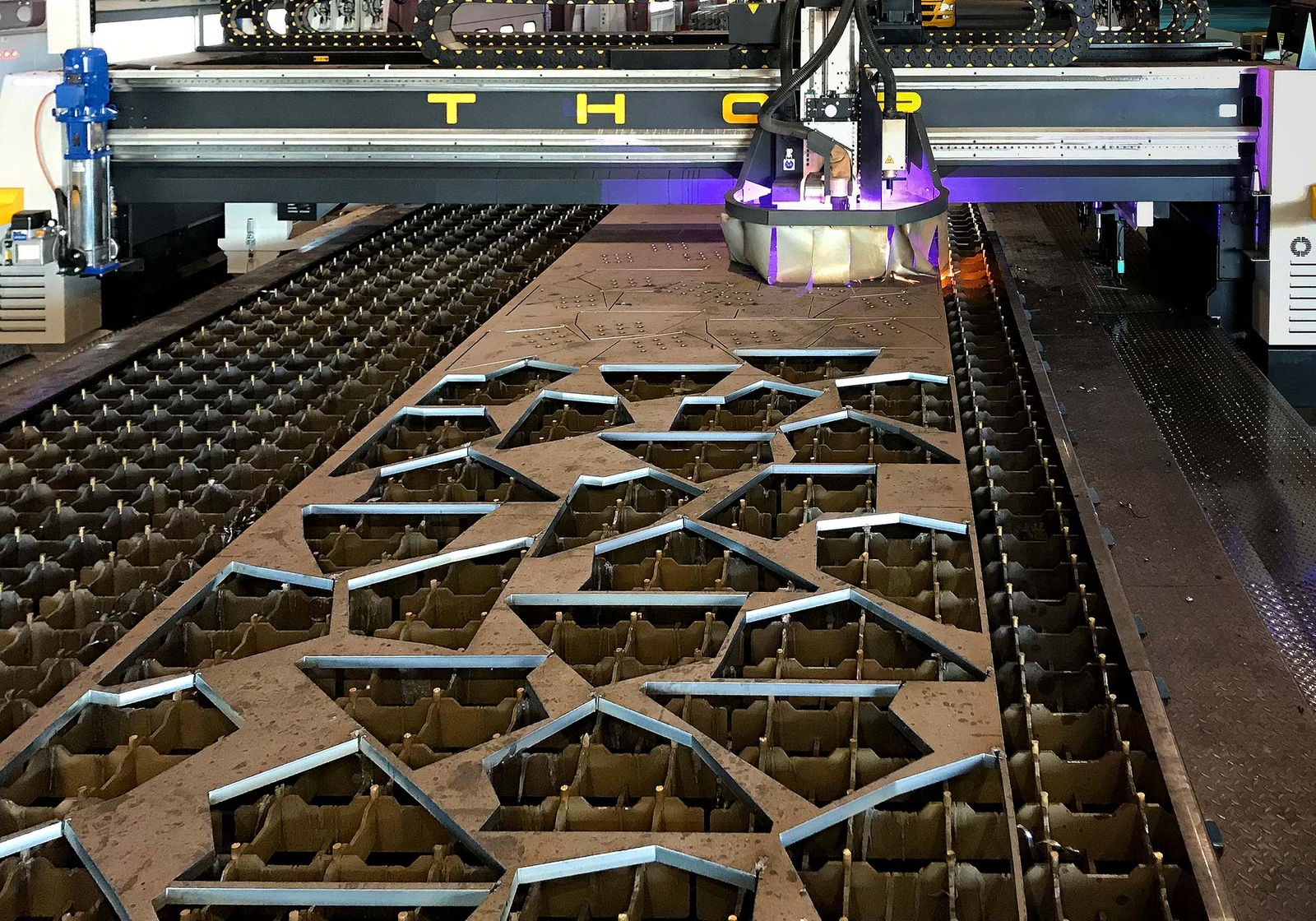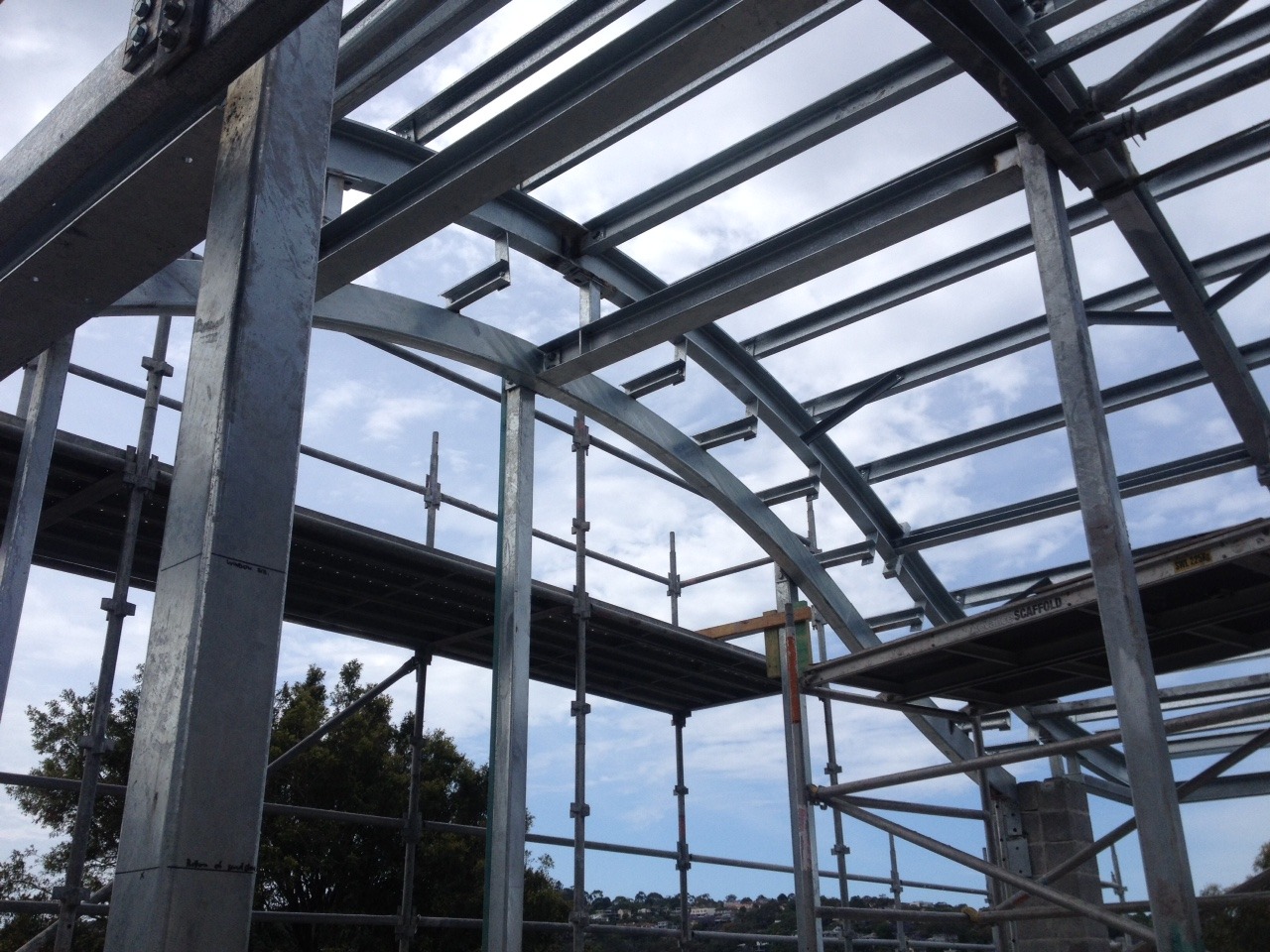Steel Fabrication Melbourne: Craftsmanship Satisfies Advancement
Steel Fabrication Melbourne: Craftsmanship Satisfies Advancement
Blog Article
The Ultimate Manual on Customized Steel Manufacture Solutions for Structural Projects
In the realm of architectural projects, the relevance of custom steel manufacture solutions can not be overemphasized. From the fundamental understanding of steel fabrication essentials to the intricate process of picking the most appropriate products, every action in this journey plays a crucial role in the utmost success of a task. As we navigate with the intricacies of layout considerations, construction procedures, and quality control steps, a thorough manual works as a directing light for specialists looking for quality in steel manufacture solutions. Remain tuned to reveal the insights that can change the way structural jobs are come close to and executed.
Recognizing Custom Steel Fabrication Basics
Delving right into the principles of personalized steel manufacture gives understanding right into the complex process of transforming raw steel into customized architectural parts. Custom-made steel construction is a specific manufacturing technique that entails cutting, shaping, and constructing steel products to produce distinct structures according to specific task demands. Comprehending the basics of custom steel manufacture is vital for making sure the successful implementation of architectural jobs.
The procedure commonly begins with the assessment of task specs and design needs. This preliminary phase entails in-depth planning and cooperation between designers, designers, and producers to figure out the most appropriate approach for producing the steel components. Accuracy is key throughout the fabrication process, as also minor inconsistencies can impact the structural integrity of the end product.
Different techniques, such as cutting, welding, and shaping, are used to transform raw steel into the wanted structural aspects. Experienced producers utilize sophisticated equipment and tools to guarantee precision and uniformity throughout the fabrication procedure. Quality assurance measures are carried out to validate the integrity of the produced parts prior to they are constructed on-site, guaranteeing conformity with sector standards and project specs.
Picking the Right Steel Products

First and foremost, the type of architectural task and its details requirements play an important role in determining one of the most suitable steel products. Variables such as the load-bearing capability, environmental problems, and preferred life expectancy of the structure will dictate the quality and kind of steel that ought to be utilized.
Furthermore, the physical residential or commercial properties of the steel, consisting of strength, weldability, and ductility, need to line up with the project's demands to ensure optimal efficiency and sturdiness (Alpha reo). Furthermore, factors to consider such as corrosion resistance, cost-effectiveness, and accessibility of the steel materials should likewise be taken into consideration during the selection procedure
Design Factors To Consider for Architectural Tasks
Architectural jobs demand careful focus to design considerations to make certain both capability and safety are focused on throughout the building process. When it comes to creating architectural projects, a number of vital factors need to be thought about to assure the success of the undertaking. Firstly, the structural stability of the building have to be a top concern. This involves analyzing loads, anxieties, and environmental elements to figure out one of the most appropriate layout that can endure various problems in time. Additionally, factors to consider for the capability of the framework play an essential role in the style process. Comprehending the function of the building and exactly how it will be utilized helps in creating a design that takes full advantage of effectiveness and functionality. Including aspects that improve the aesthetic appeals of the structure can further boost the total style. Balancing capability, looks, and security is crucial in producing successful architectural projects that fulfill both functional and visual demands. By meticulously taking into consideration these aspects throughout the style stage, designers and engineers can make sure the structural job's success from perception to completion.
Streamlining Manufacture Procedures for Efficiency

Furthermore, carrying out lean manufacturing principles can dramatically improve effectiveness in steel manufacture. By minimizing waste, enhancing operations, and boosting communication between various groups associated with the construction procedure, tasks can be completed much more quickly and with greater top quality standards.
Additionally, developing an efficient manufacturing schedule and workflow can help in prioritizing jobs, appointing sources properly, and meeting project due dates immediately. By having a clear strategy in area and regularly keeping track of development, any type of prospective traffic jams or hold-ups can be determined and attended to quickly, guaranteeing effective and smooth construction procedures for structural jobs.
Quality Assurance and Job Administration in Steel Construction
To guarantee the successful implementation of steel manufacture tasks, thorough top quality control procedures and efficient job administration practices are important components in maintaining accuracy and conference client expectations. Quality assurance in steel manufacture includes extensive evaluations at various phases of the construction process to verify conformity with job specifications and industry criteria. This includes material screening, dimensional checks, and weld assessments to guarantee structural honesty and security.
Project monitoring plays a vital role in coordinating the different aspects of websites steel manufacture jobs, such as scheduling, source allotment, and interaction among group members. A distinct job plan with clear goals, milestones, and timelines aids to keep track of progression and attend to any prospective issues proactively. Efficient communication between all stakeholders, consisting of clients, engineers, service providers, and fabricators, is crucial for making certain that the project advances efficiently and meets the preferred top quality standards.
Final Thought
Finally, customized steel manufacture plays a critical duty in architectural tasks by giving tailored options making use of the right materials and layout considerations. Effectiveness in manufacture procedures, quality control, and effective job administration are crucial for effective end useful link results. By comprehending the essentials of customized steel fabrication and carrying out structured procedures, task groups can supply long lasting and top notch frameworks that fulfill the details demands of their customers.
Personalized steel manufacture is a customized production method that entails cutting, shaping, and constructing steel products to produce special structures according to particular project requirements.To ensure the effective implementation of steel construction jobs, precise quality control measures and reliable task administration methods are important components in keeping accuracy and meeting client assumptions. Quality control in steel construction involves rigorous examinations at different stages of the fabrication procedure to confirm compliance with task specs and industry criteria (metal fabrication melbourne).Job management plays a crucial duty in collaborating the numerous elements of steel fabrication tasks, such as scheduling, source allotment, and interaction among group members.In conclusion, custom-made steel fabrication plays a critical function in architectural jobs by giving tailored remedies utilizing the appropriate materials and layout considerations
Report this page